Humanities & Social Sciences
Youth urged to embrace technology, innovation & creativity to foster EAC integration
Published
2 years agoon
By
Mak Editor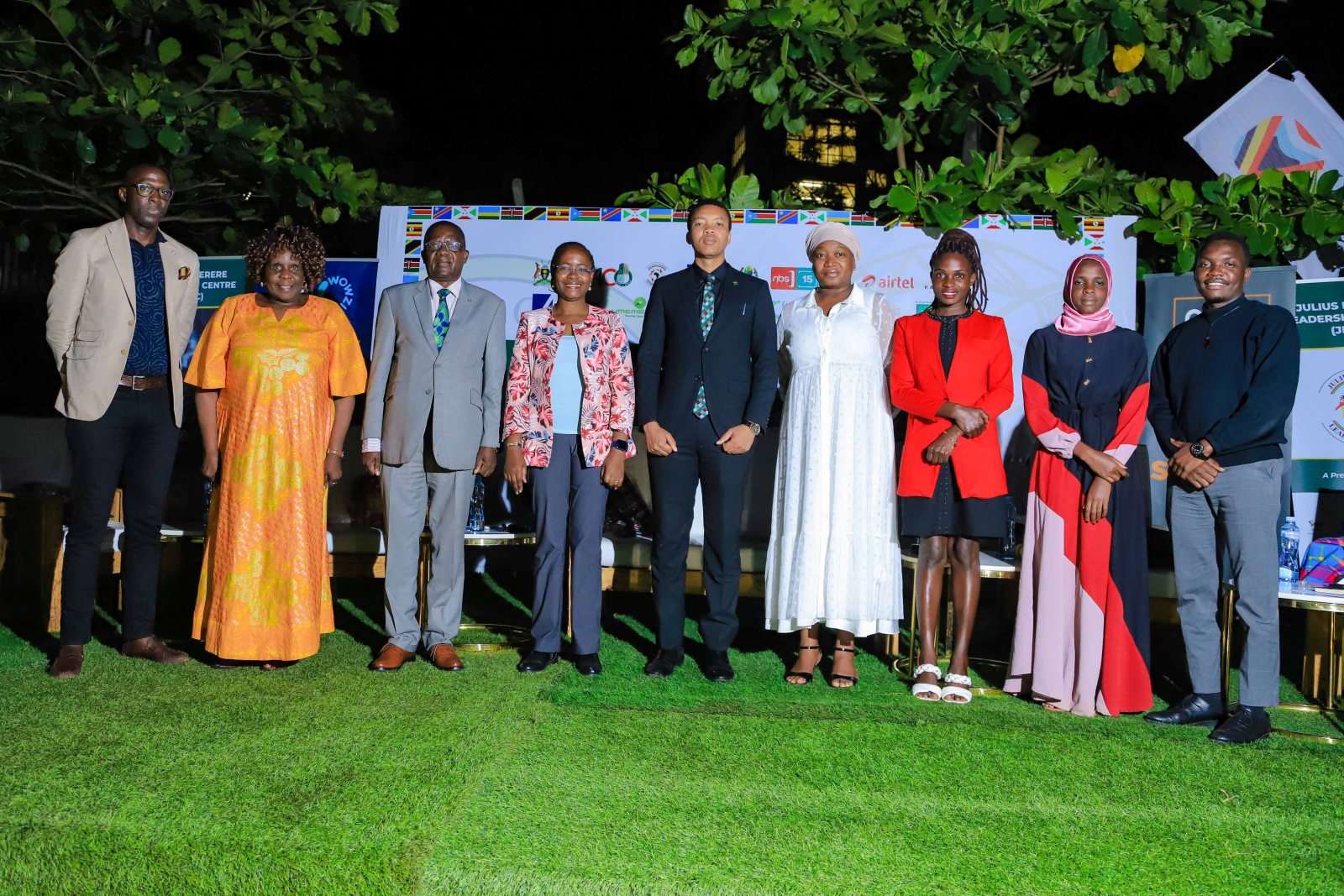
A number of possibilities and opportunities for young people exist within the East African Community (EAC). By fostering collaboration in the pursuit of building a borderless East Africa Region, young people will be the beneficiaries of this unity. Speaking at the fireside conversation also known as Ekyooto held at Julius Nyerere Leadership Centre (JNLC), Makerere University on October 13, 2023 Ms. Bhoke Wankyo Nyerere urged the youth to make good use of their innovation, creativity and the available technology to communicate in order to curb the challenges and at the same time appreciate the opportunities that come with regional integration.
As part of the two-day youth-focused symposium, the Ekyooto brought together thought leaders, the youth, academics and other stakeholders from across the region to envision and strategize for a more integrated and harmonious future of the East African youth. Associate Professor Sarah Ssali, the Dean, Makerere University School of Women and Gender Studies and JNLC-Board Member moderated the fireside conversation under the theme, “Building a borderless East Africa.”
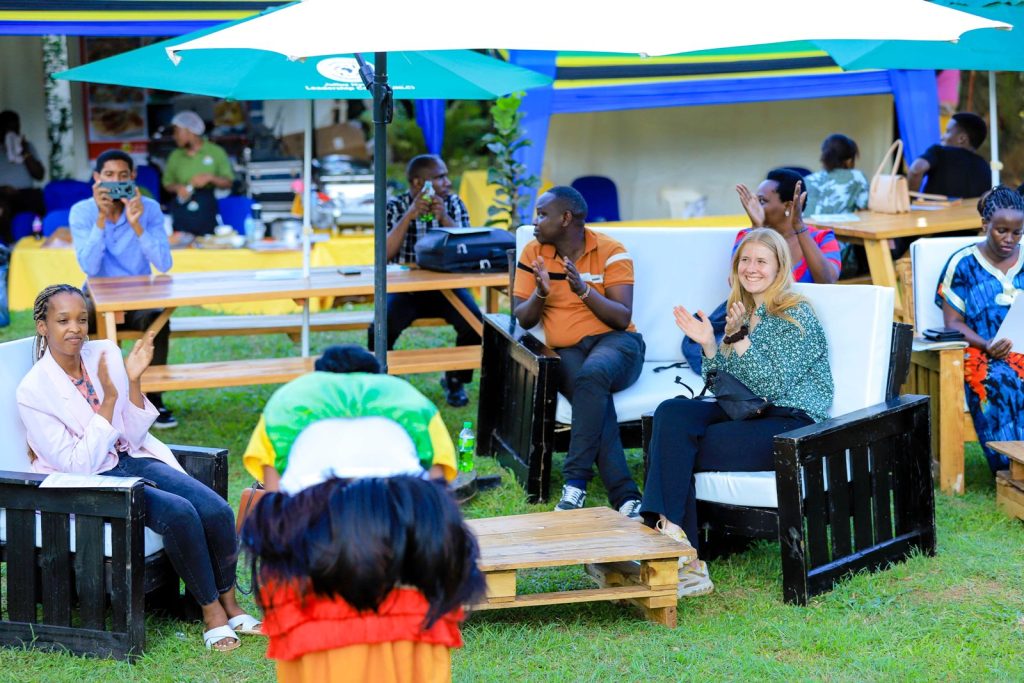
Ms. Bhoke Wankyo Nyerere, Mwalimu Julius Nyerere’s granddaughter who represented the Nyerere family at the symposium explained that a real borderless East African Community should be inclusive and people-centred with the youth as its primary target. She said that the young people need to take responsibility and use their innovation, creativity and the technology at hand to disseminate the information they have in order to bring onboard their fellow youth who may lack knowledge about the EAC.
“We are talking about the youth possibilities and opportunities and how to lead a borderless East African Community having the youth involved. According to Ms. Bhoke the greatest challenge lies in communication. Most of the young people do not know what the EAC is all about and unfortunately, some of them do not even care! With the available technology, you are all interacting through social media and to the majority of you-borders are not an issue. So, I think it is up to you, the young people to take the lead and share the information of EAC with the rest of the people within your countries,” Ms. Bhoke said.
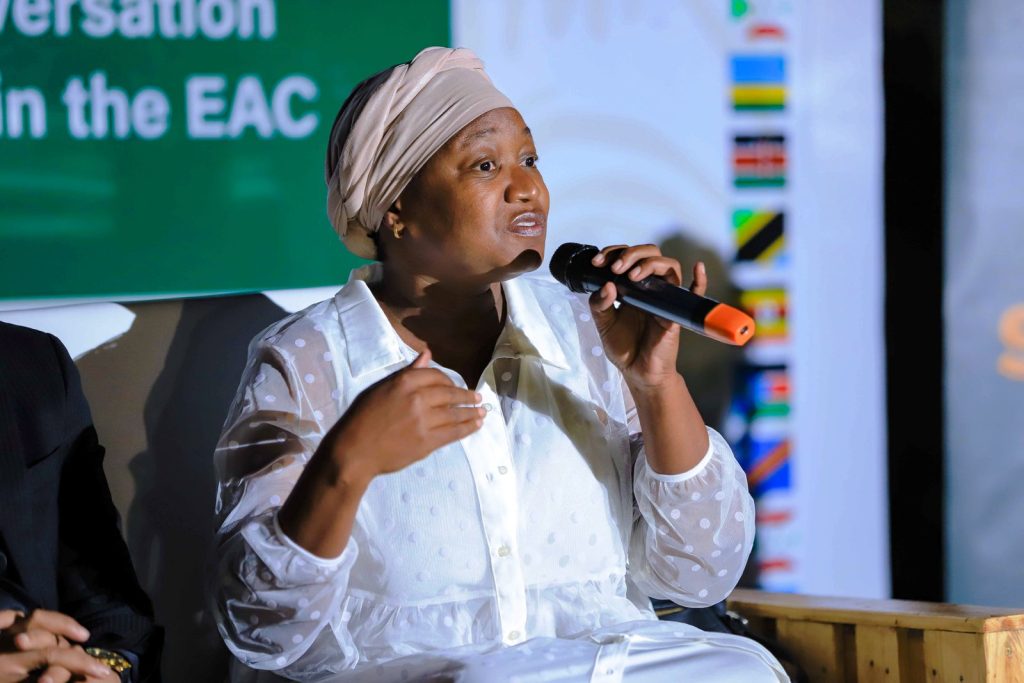
Ms. Bhoke challenged the youth who are knowledgeable about the EAC work, to first of all help their societies appreciate what the Community is before reaching out to other countries. In her view, most of the East African Youth especially in the rural areas lack information about EAC and the opportunities a borderless East African Community presents. She however noted that a prerequisite to an integrated East African Community, is the need to put aside our differences, stay united and to respect one another.
“If we really want to succeed in uniting East Africa, we need to have that critical mass of young people who are creative, innovative and interested in the EAC integration. What is most important is respect for every person, despite our differences. We need to focus on the things that bring unity; those things that we have in common. We should look at our similarities and those are the things we should embrace, support and uphold,” Ms. Bhoke said.
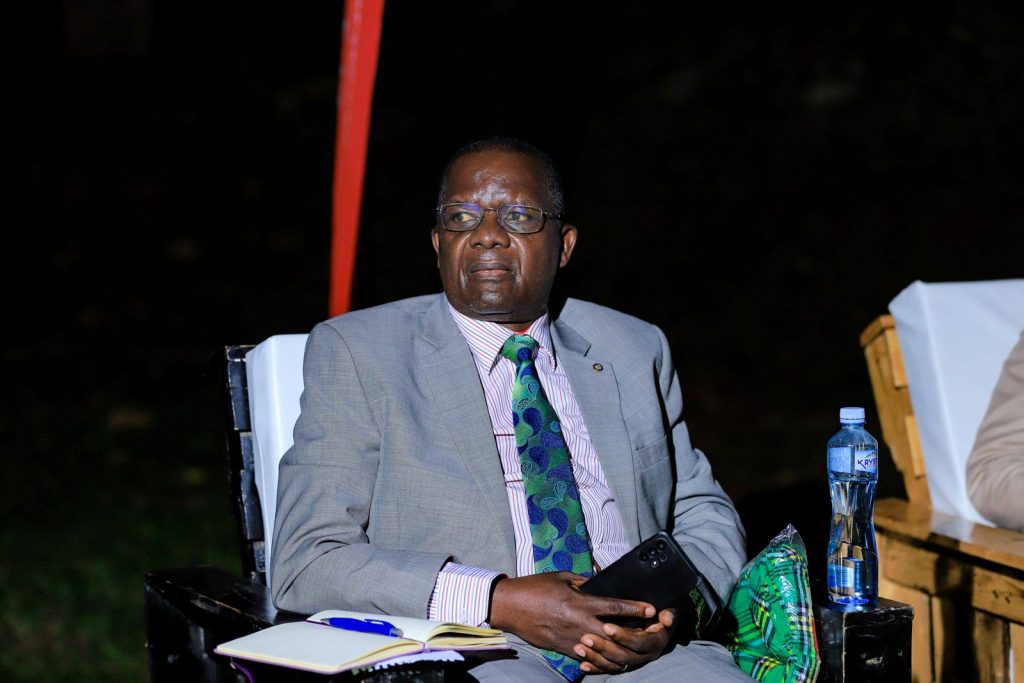
In the same spirit, Dr. Saturninus Mulindwa Kasozi, Chair – JNLC Board of Directors and Director of Programs and Students Affairs at Uganda Management Institute (UMI) reminded the young people that they were privileged to have technology at their disposal. He noted that the JNLC creates a vibrant platform to give young people an opportunity to share their ideas in order to survive in the 4th Industrial Revolution (4IR) and create a better future for East Africa and Africa at large. He urged the young people to use the different technologies, experiences and their cultural values to advance their society as well as the Pan-African ideals of Mwalimu Julius Nyerere.
“The opportunities you have should challenge you to possibly think about how you will survive in the fourth industrial revolution. You have been told about Artificial Intelligence (AI), but how are you exposed to it? How will you use AI to advance the agenda of your country, East Africa and that of Africa such that you can be able to be competitive in this global world where mankind must live and use the machines to advance the wellbeing of humanity, especially for Africans who are at threat because of technology,” Dr. Kasozi mentioned.
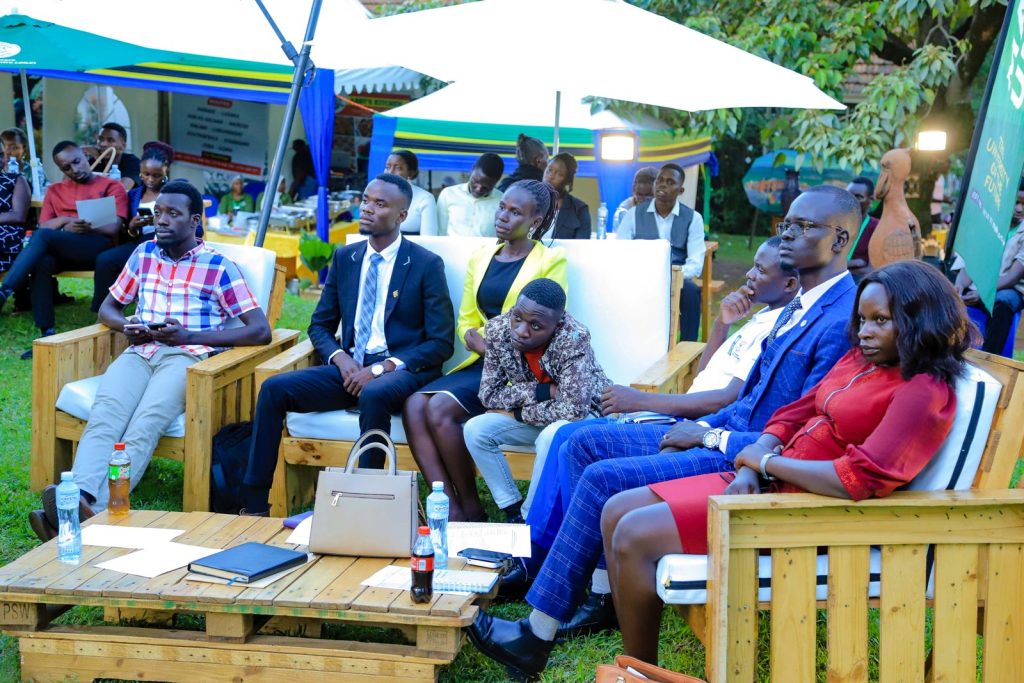
He pointed out that JNLC was initiated by His Excellency the President of Uganda to bring young people on board to advance the ideals of Mwalimu Julius Nyerere as a to preserve his legacy and advance the Pan-African agenda. According to Dr. Kasozi, JNLC has been intentional about providing the youth with information on the EAC and engaging them by organizing leadership trainings that bring together young people from different institutions to see how they can work together to unite and develop East Africa and the whole of Africa as envisioned by Mwalimu Julius Nyerere.
“If we recall, our forefathers created the Organization of African Unity (OAU) to bring Africans together. So,beyond thinking of getting visas to cross borders, what are you as the young people in your generation doing to bring together all the youth in East Africa and beyond? If you choose to move, what are you carrying with you across the borders? All you are looking for are employment opportunities. We want you to think beyond that and shape the future of East Africa to one where boundaries are no longer a hindrance to our movements,” Dr. Kasozi said.
Dr. Kasozi revealed that Africa is endangered and being re-colonized using indirect approaches. He therefore emphasized the need to address the mindset of young people to think beyond individualism and look at the big picture-their country, East Africa and the African continent at large. He said that JNLC provides a platform for the youth to share their ideas and think beyond their boundaries and he hoped that the JNLC and its programmes would nurture a cadre of young leaders who can promote the ideals of Julius Nyerere and drive the agenda of a borderless East Africa region.
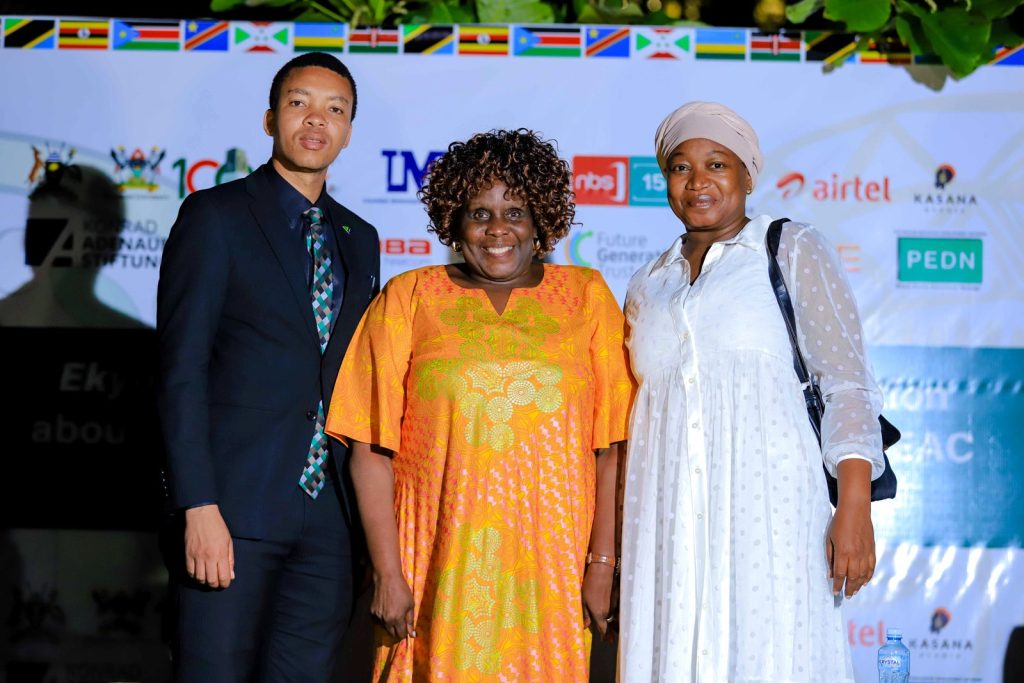
Speaking about developing leadership skills, JNLC Executive Director, Dr. Nansozi K. Muwanga said that the Centre works to empower young people, especially student leaders, to do their job. She added that the Centre developed the JNLC leadership curriculum which is anchored in the ideals and ideas of Mwalimu Julius Nyerere and Pan Africanism. She informed the participants that the Centre recently trained guild leaders from all over Uganda as a way to test-drive its newly consolidated and tailor-made leadership curriculum that now incorporates two new modules on Financial Literacy and Mental Health and Wellbeing.
“In partnership with the School of Languages, JNLC has developed a basic Kiswahili curriculum to go hand-in-hand with our leadership program that is supposed to provide a platform and a beginning for students to be able to communicate with other communities within East Africa. So, not only do you have the skills set to bridge the gap between academia and the workplace, but also the ability to speak a language albeit not perfectly that is currently used by over 152 million people across Africa, which is a good beginning.” Dr. Muwanga said.
Mr. Andrew Tumusiime, a member of the founding board of JNLC explained that the central point and focus must be on the rural youth who lack the exposure. He noted that most of the exposure has focused on the youth in urban areas.
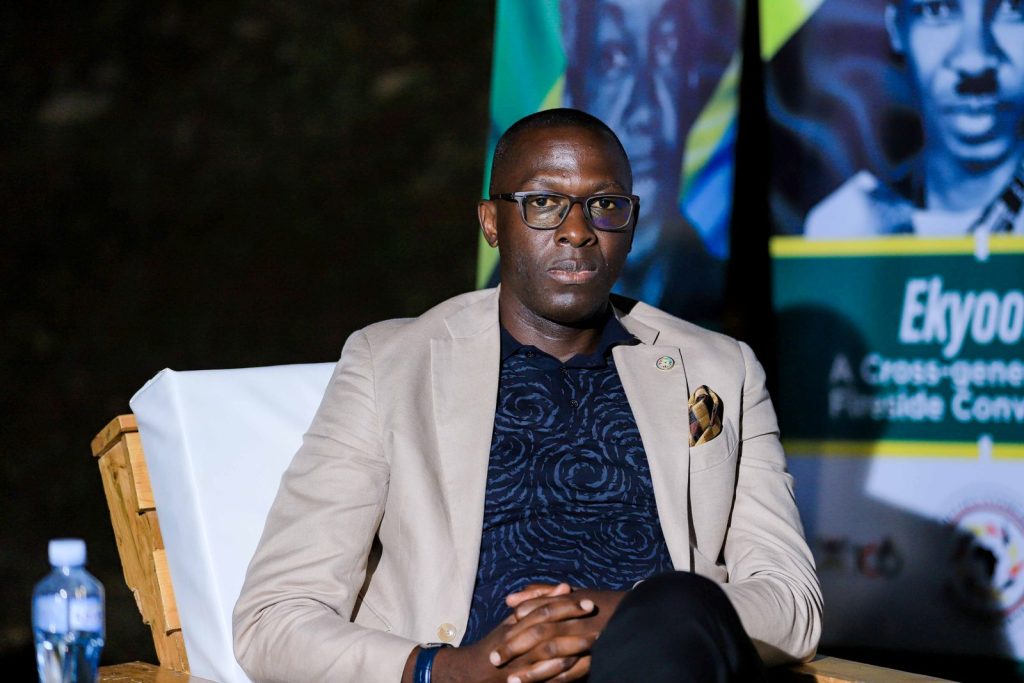
He stated that as East African countries struggle to integrate, they still have a lot of challenges to overcome. Mr. Tumusiime expressed the need for the East African community member countries to ensure that they have a customs union and common market, adding that they cannot survive individually but as a team that continues to interact, benchmark best practices and build on each other’s strengths.
“It is true that East Africa has its own challenges such as slow economic growth implying that you have a small formal labour market. As a region, we have the biggest market anybody can ask for, we have the mineral resources that we can exploit and we have the labour force. This means that as we prepare to face our challenges, you would not only have to plan, but to prepare in order to have the right prepared structures in place. What we have to do is to have this great collaboration, set up taskforces with experts from different countries and timelines to achieve our objectives.” Tumusiime advised.
He told the elder generation of leaders that it is incumbent upon every individual in the East Africa community to strive and support the vision of the East Africa Community if they are to survive in the next generation that is waiting to see, audit and judge how well they have prepared for them.
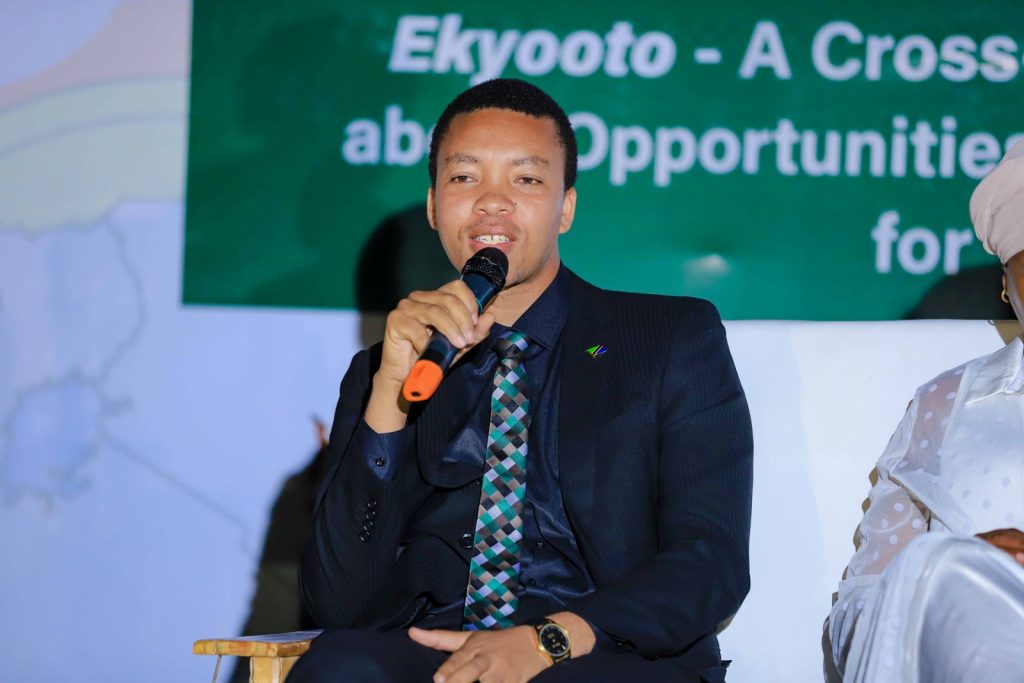
According to Mr. Joram Nkumbi, the Country Coordinator of the African Youth Leadership Forum and representative of PLO Lumumba Foundation in Tanzania, there are a lot of possibilities in the East African Community, and the region cannot develop them without unity and integration. He said that a united East African region will realize a great market, unlike the one we have today.
“Remember all the four pillars of the East African Community and all its protocols; the customs union and the benefits it brings, the common market and the benefits it brings, the free movement of goods and people and some services from one place to another as well as the monetary union. Though we have not yet achieved them, they point to future possibilities. Once we achieve them, we will have the possibility of achieving regional integration where we have one government, one army, one voice and peace and security will be better. So, the development is almost impossible without these four pillars,” Mr. Nkumbi said.
Recalling the early years of the EAC before it collapsed, Mr. Nkumbi said that EAC was a better community with one single currency called the East Africa Shilling, one University, the University of East Africa, one telecommunications company, one railway system and one airline. He said that those are the possibilities that can be brought back when we come together as the East African Community.
“Our forefathers did what they could to bring us here, so, we must carry and refuel that torch of our great ancestors to spread the message of unity, integration and face the challenges we have. The next step is perhaps the most difficult one, but we must do it because we have no other option, but to assume this responsibility and burden of uniting ourselves. With this integration, we can exchange ideas, interact more with our friends in the region and come together. In Kiswahili-speaking communities, we have a proverb that says, ‘Umoja ni nguvu, utengano ni udhaifu’ which translated means ‘Unity is strength, disunity is weakness,” Mr. Nkumbi remarked.
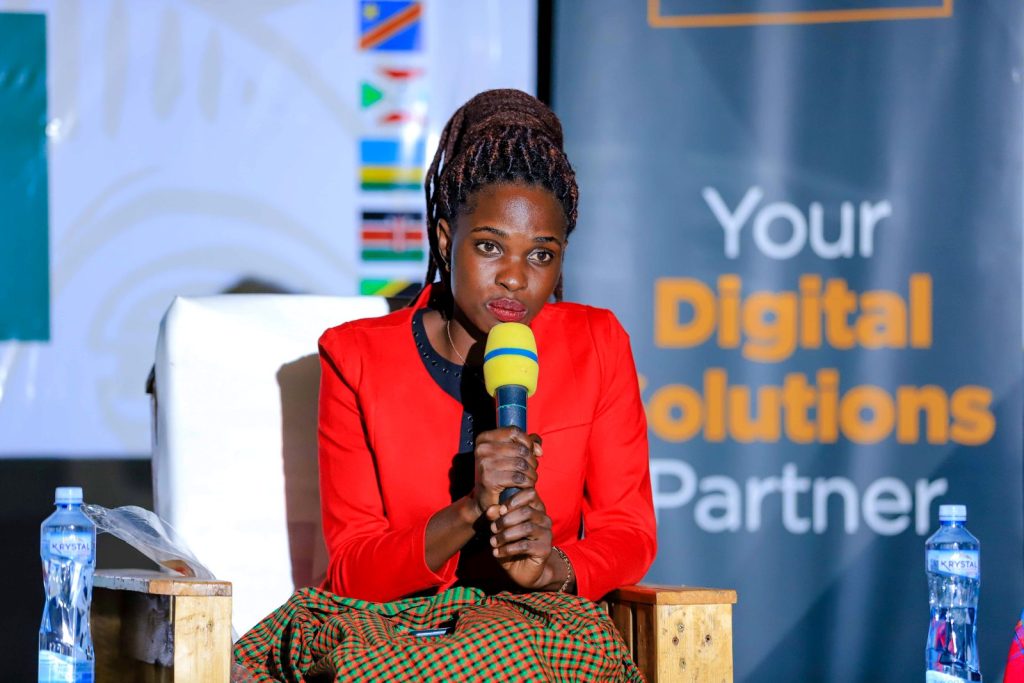
In her submission, Ms. Jovia Nazziwa, the Equity and Inclusion Lead–MasterCard Foundation Alumni Association Uganda reiterated that majority of the youth intervention programs have favored those in the urban areas, leaving the rural youth behind. Most of the platforms are within the urban areas where they would have live broadcasts on the televisions, online spaces, but then those in the rural settings may miss all those opportunities. She said that majority of youth in rural areas cannot relate with the EAC topic due to the information gap.
“How can we achieve this objective by sending information to those in rural areas? Can we relate with the village systems or the districts systems and go back to being local with the areas that do not have the Internet, in areas where we know that people do not want to know because they are not informed about the benefits? We can take this information to the rural areas and share with them the benefits of integration like having a common market for their agricultural produce with no boundaries; letting them know that they can trade beyond Uganda,” Ms. Jovia Nazziwa said.
She noted that majority of the young people do not relate to most of the issues that concern the EAC. Furthermore, she pointed out the need to share the positive messages about the EAC, to give young people hope with the right information at the right time about the projects being developed and how the youth will benefit from them in the future.
“If projects are being created and planned and issues are discussed today but they are going to be beneficial at a certain time, let us share with them that information earlier and to know where to target and what to choose because when they get the information, they act. Those parents who received information about the existence of oil in Uganda sent their children to study oil courses and right now, some have PhDs in Oil and gas. They received the right information that there will be Oil and it will be beneficial in the next 20 years, so, they were able to act on this information,” Nazziwa mentioned.
She urged participants and training institutions to always provide information in a positive manner.She noted that whereas the young people have various innovations in line with climate change, waste management and technology, they don’t know how to proceed and use that knowledge. She thus advocated for the need to provide the information, knowledge and mentorship to the young people.
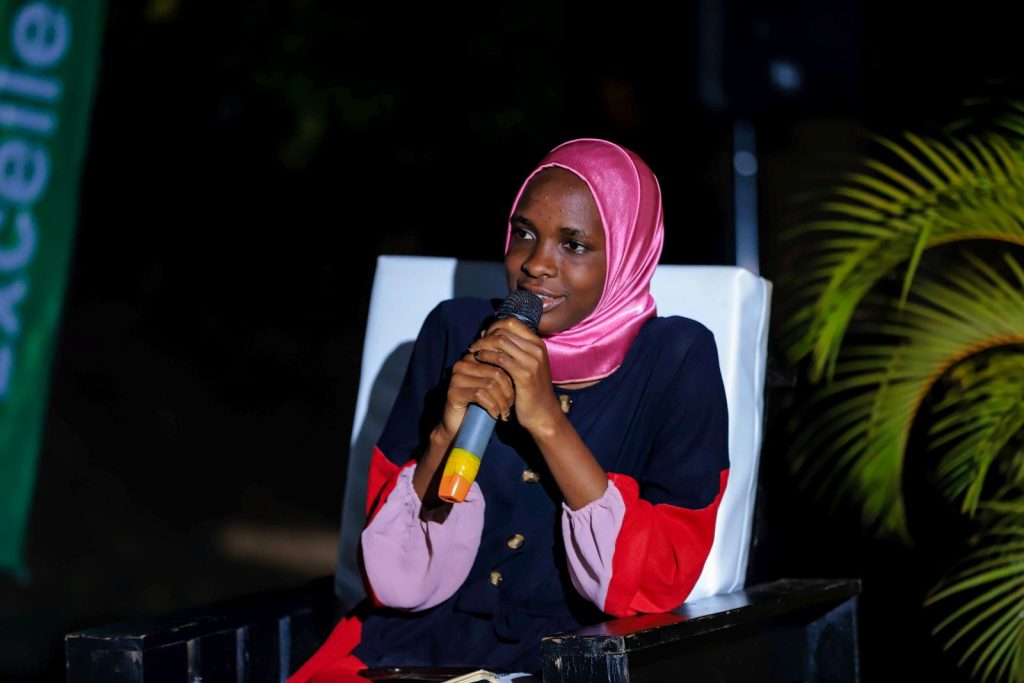
H.E. Mariat Namiiro, the Vice President of Makerere University 89th Students’ Guild proposed that the best way to achieve regional integration was to collaborate and share ideas regarding the EAC unity through the organization of debates among the fellow youth to sensitize and raise awareness, especially for those in remote areas.
H.E. Namiro believes that awareness is really important aspect of EAC unity. “Very many youths are not aware of the EAC. With awareness, I believe that they will get to know what it will feel like and why we should fight towards having that integration. Collaboration is also important. I would feel warm and pleased if at all we can share as youth of East Africa, combine ideas and see how we can help each other,” H.E. Namiiro said.
In his opinion, H.E. Alionzi Lawrence Dangote, the 88th Guild President of Makerere University said the EAC opportunities for the young people are right in the possible solutions to problems that are found in realizing full integration of East Africa. According to him, what they ought to do is to draw inspirations from the journey that they have walked as the EAC, and completely address themselves to what they ought to do as the young people to come together and unite for a cause.
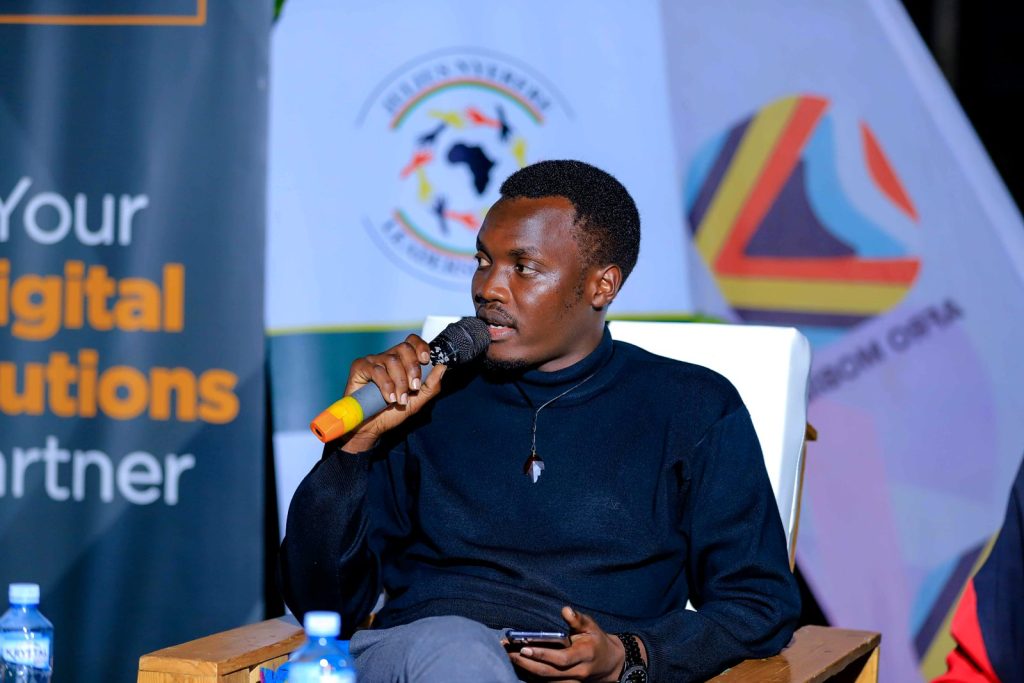
“If the young people through the Uganda National Youth Council demand for the EAC integration, and the youth in their engagement programmes put pressure on their government and use every avenue they have to speak up, that the future is about the integration of East Africa more than before, this might be their most prominent contribution.” Mr. Alionzi said.
Alionzi highlighted the successful journey that has so far been walked in the integration of East Africa. He said that as early as the year 1917, Uganda and Kenya came together to form the customs union which Tanzania joined in 1927. Important to note was the year 1977 when the EAC was dissolved due to economic disparities among the member states, with Kenya way ahead of others, and also due to significant differences in political ideologies. Fortunately, it was revived in the year 2000 when Burundi and Rwanda joined.
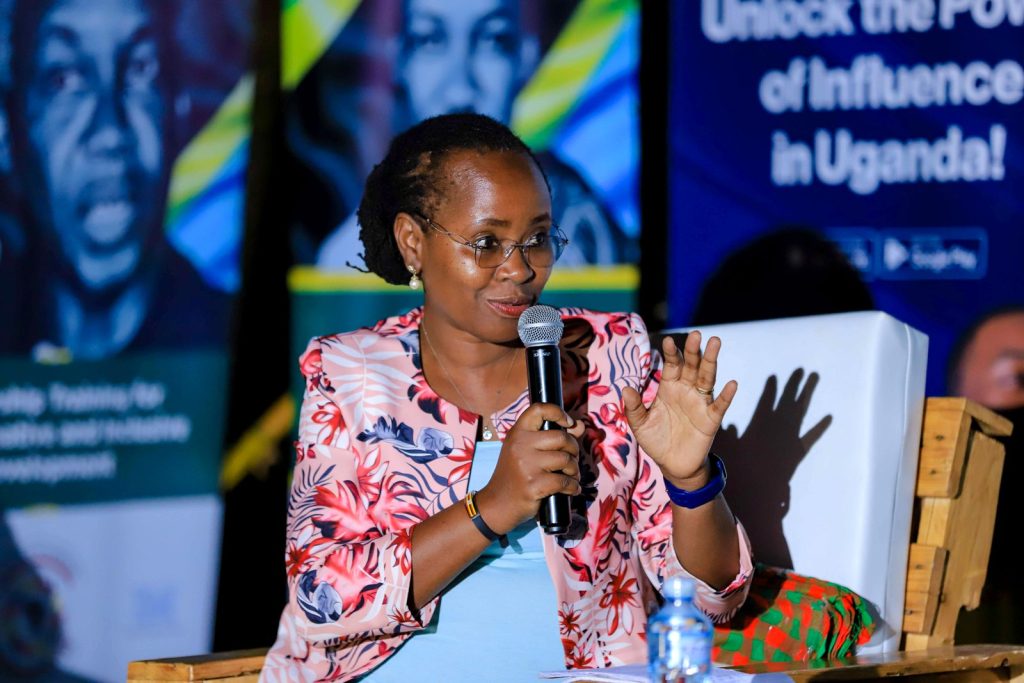
Wrapping up the session, Associate Professor Sarah Ssali commended the stakeholders and management of JNLC as well as the young people for the active participation that made the conversation both provocative and informative. She called upon all stakeholders and young people committed to the region’s growth to join hands and work collectively in the transformative journey towards achieving a Borderless East African Community.
The JNLC Fireside conversation (Ekyooto) was one of the activities in the two-day youth symposium to commemorate Mwalimu Julius Nyerere’s ideals. Hosted by Julius Nyerere Leadership Centre in partnership with Uganda Management Institute and Makerere University, the Symposium aims to foster and maintain the strong values of African unity and Pan-Africanism that Mwalimu Nyerere stood for.
Mwalimu Julius Nyerere passed away on October 14th 1999. To commemorate his passing, Nyerere Day is observed annually on 14th October. The Annual Nyerere Symposium, which is now part of the Makerere University activity calendar provides JNLC and Makerere University with an opportunity to recognize Mwalimu Julius K. Nyerere, one of its distinguished alumnus who fought for the independence of Tanzania and Africa in general.
Article by: Mak Public Relations Office and JNLC

You may like
-


Meet Najjuka Whitney, The Girl Who Missed Law and Found Her Voice
-


Makerere University School of Public Health Graduates First Cohort of Cost-Effectiveness Analysis Short Course
-


Climate variability found to shape malaria trends in Yumbe District
-


Mak hosts First African Symposium on Natural Capital Accounting and Climate-Sensitive Macroeconomic Modelling
-


Uganda Martyrs Namugongo Students Turn Organic Waste into Soap in an Innovative School Project on Sustainable Waste Management
-


Olivia Nakisita and the Quiet Urgency of Adolescent Refugee Health
Humanities & Social Sciences
Meet Najjuka Whitney, The Girl Who Missed Law and Found Her Voice
Published
19 hours agoon
February 23, 2026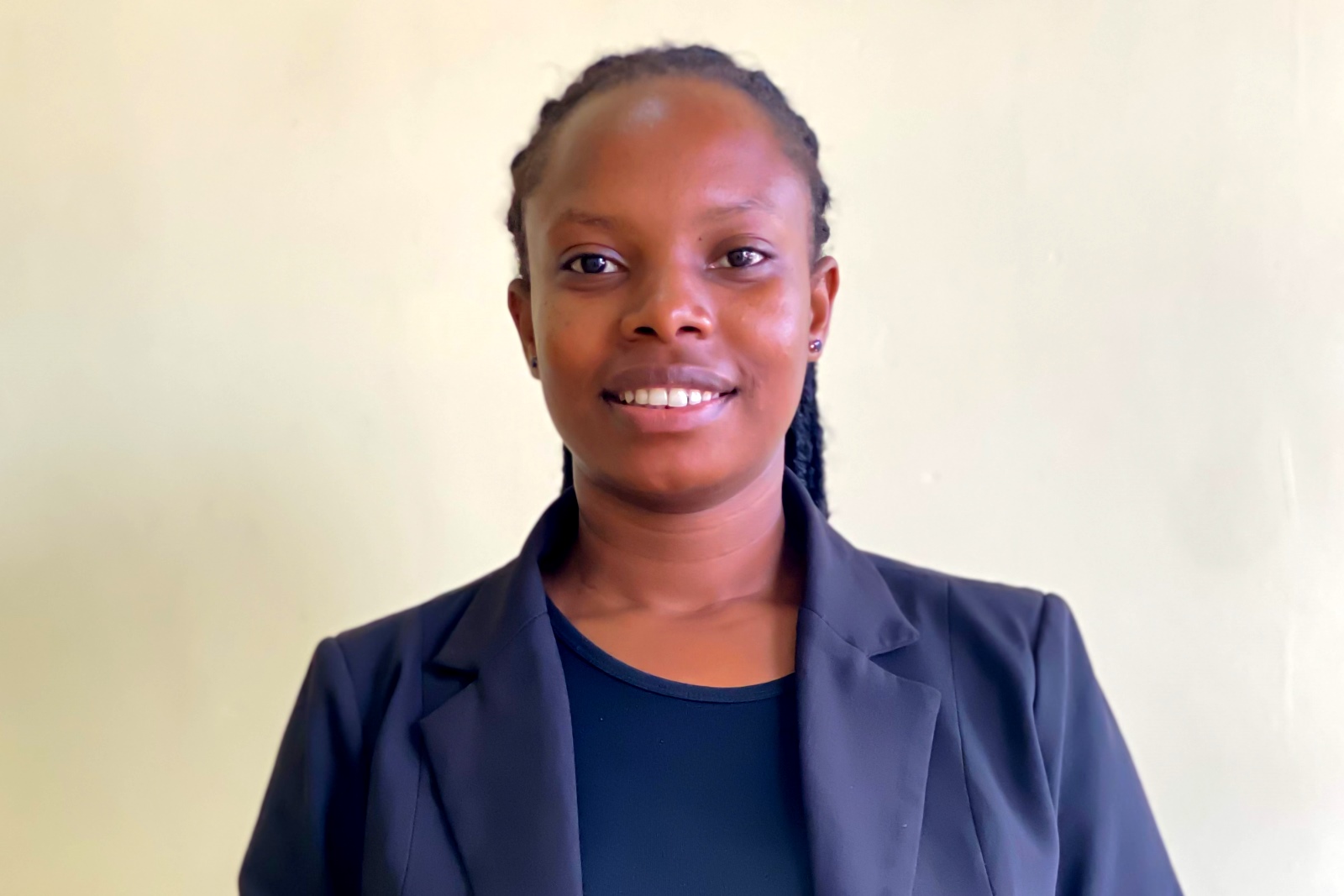
On the morning of Friday, February 27, when the academic procession winds its way across Makerere University’s Freedom Square for the last day of the 76th Graduation Ceremony, Whitney Najjuka will walk into history with a number beside her name: 4.46.
At Makerere, that number means First Class Honours. It means the Vice Chancellor’s List. It means she graduates as the only First-Class student in Journalism and Communication this year. But numbers, as Whitney has learned, rarely tell the full story.
Born on March 27, 2002, in Nabbingo, Kyengera Town Council, to Margaret Kusemererwa and Fred Kasirye, dreamt she would do Law, one of the disciplines, prestigious, almost inevitable next steps for a student who had excelled in secondary school. She had done everything correctly. Studied hard. Scored well. Followed the script.
But Makerere University had other plans. She missed the pre-entry mark, but found her name under Journalism and Communication, another prestigious course offered by the Journalism and Communication Department at Makerere University.
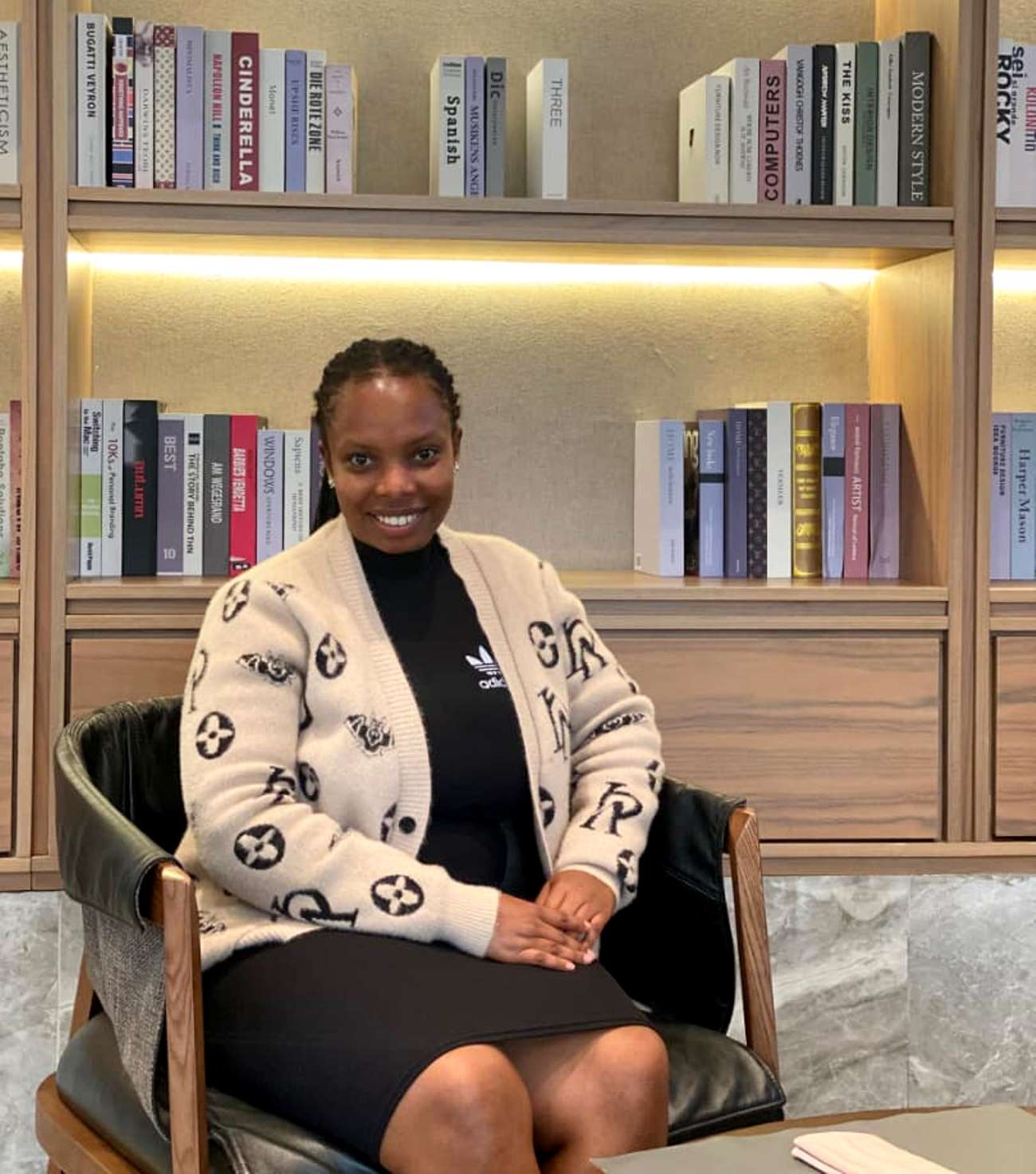
Najjuka began her academic journey at Muto Primary School in Buwama, earning 8 aggregates in the Primary Leaving Examination, a performance that positioned her strongly for secondary school.
She would later join St. Lucia Hill School, Namagoma, where she earned 20 aggregates at O-Level and 17 points in History, Luganda, and Divinity at A-Level.
Missing her dream course, Law, felt at first, like a detour. But Whitney was encouraged by Sanyu Christopher, her uncle, and she settled for a government-sponsored slot in the Bachelor of Journalism and Communication at Makerere, which she had applied for before.
She entered uncertain. But she graduates transformed.
The Pivot That Became a Purpose
Whitney speaks of her early university days with candor. She did not arrive at the Department of Journalism and Communication with a burning childhood ambition to be a journalist, but because another door had closed.
Then, Social and Behavior Change Communication happened. Applied Strategic Communication happened. She began to see media not as headlines and microphones, but as architecture, shaping how societies think, argue, and act.
The turning point came in her third year. The Female Journalist Foundation published her story on Sexual Gender-Based Violence (SGBV) and its emotional toll on survivors. What startled her was not its publication but the reaction. Comments flooded in. Debates ignited, especially about the role of men in combating GBV.
“I realized media doesn’t just report,” she says. “It frames how society views a crisis.”
Her voice, once tentative, had entered a national conversation.
The Discipline Behind 4.46
At Makerere University, a First Class CGPA is not built on brilliance alone but on ritual.
Whitney’s ritual began with showing up, on time, every time. She treated lectures as appointments with her future self. She refused to confine her learning to the syllabus. While attending workshops at the Aga Khan Graduate School of Media and Communication and obtaining external certifications, she sought and was open to mentorship through the Public Relations Association of Uganda (PRAU).
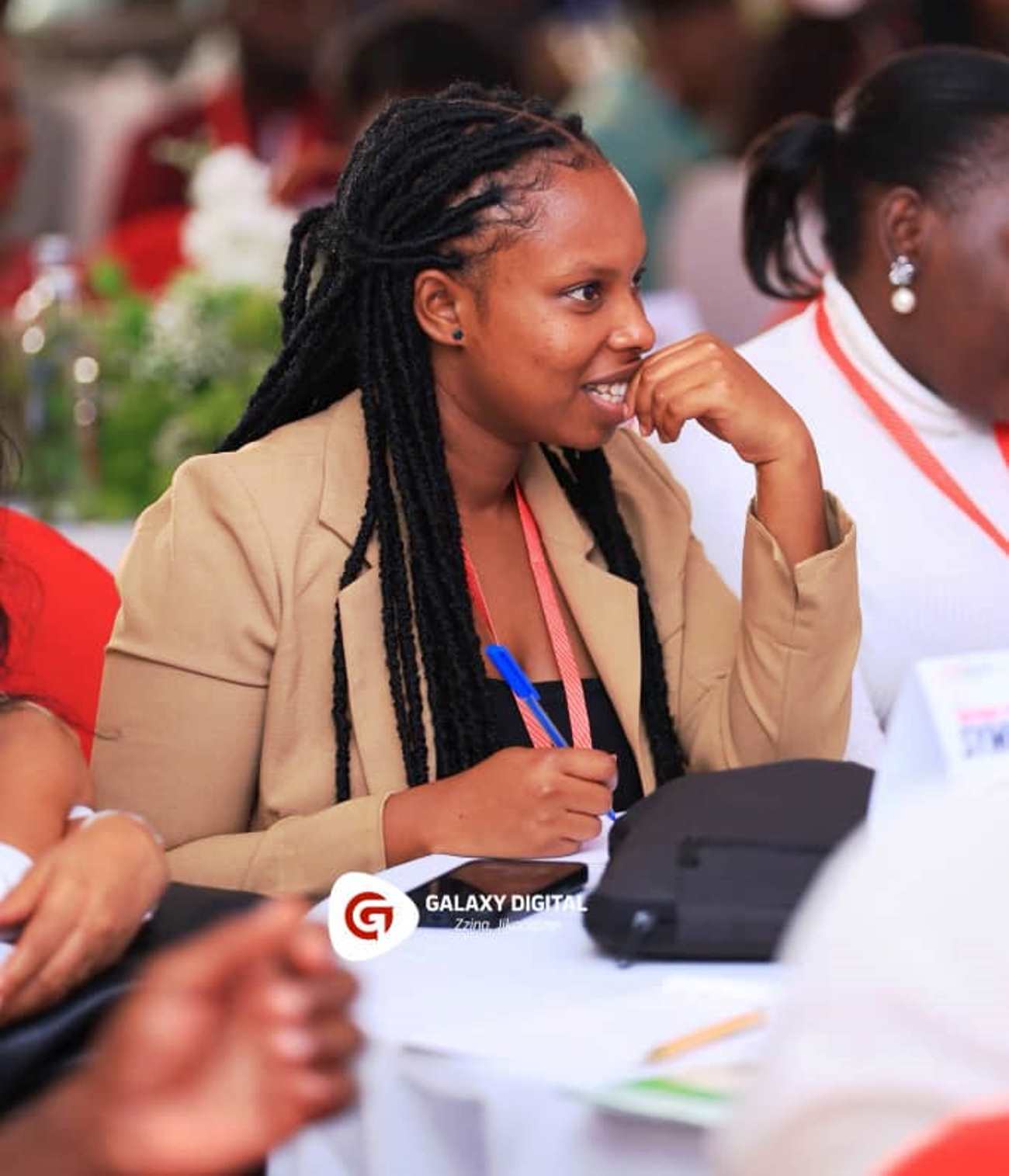
She wanted theory anchored in practice. And then there was the commute.
From Nabbingo, a hill in Wakiso District, some 18.6 km to Kampala, where the Makerere Main campus is situated, and back, nearly 20 hours a week dissolved into Kampala traffic. Two-hour journeys before 8:00 a.m. lectures. Dust. Noise. Headaches. She learned to manage energy the way others manage time. Fatigue became a tutor in resilience.
“I had to be intentional with every remaining hour,” she says. “Excuses were not an option.”
Learning to Practice Communication
If classrooms taught her analysis, presentations taught her courage. Pitching projects, defending research, and standing before peers quick to critique forced her to think on her feet. She was no longer simply studying communication; she was practicing it.
In 2024, the AGMES Fellowship at the Aga Khan Graduate School of Media and Communication pushed her further. She received funding to produce a capstone project on the mental impact of gender-based violence on survivors. She identified sources, conducted interviews, handled trauma with care, and worked with professional editors.
The Communication, she learned, is logistics and ethics as much as eloquence.
The Future She Sees
Whitney is optimistic about Uganda’s media landscape. The digital shift, she believes, has democratized influence. Young communicators are no longer confined to legacy newsrooms or offices.
Yet she sees a gap in the absence of structured research on sustainable, ethical, profitable independent media ventures in Uganda. Her ambition is not only to practice communication, but to study it. To produce data-backed frameworks that help young Ugandans transition from graduates to media entrepreneurs.
She wants to make the impact scalable.
What Remains
As the only First-Class graduate in her cohort, she is careful not to mythologize herself. “Success isn’t brilliance alone,” she says. “It’s a daily commitment when nobody is watching.”
Even before graduation, Whitney had stepped into the industry through a mentorship internship at Capital One Group (COG EA Ltd), a strategic marketing communications agency operating across East Africa.
At Capital One Group, we spoke to Paul Mwirigi Muriungi, the Managing Director and Head of Strategy, who spoke of Najjuka as a progressive and intentional young professional who approaches her work with curiosity, maturity, and responsibility.
“Her attitude is exemplary. She is teachable, receptive to feedback, and eager to grow. While technical skills can be taught, character, work ethic, and mindset determine long-term success, qualities that Whitney consistently demonstrates. Given her academic excellence and professional application, we believe she has a bright future both at Capital One Group and within the wider communications industry. She represents the kind of talent the profession needs: thoughtful, adaptable, and committed to excellence.
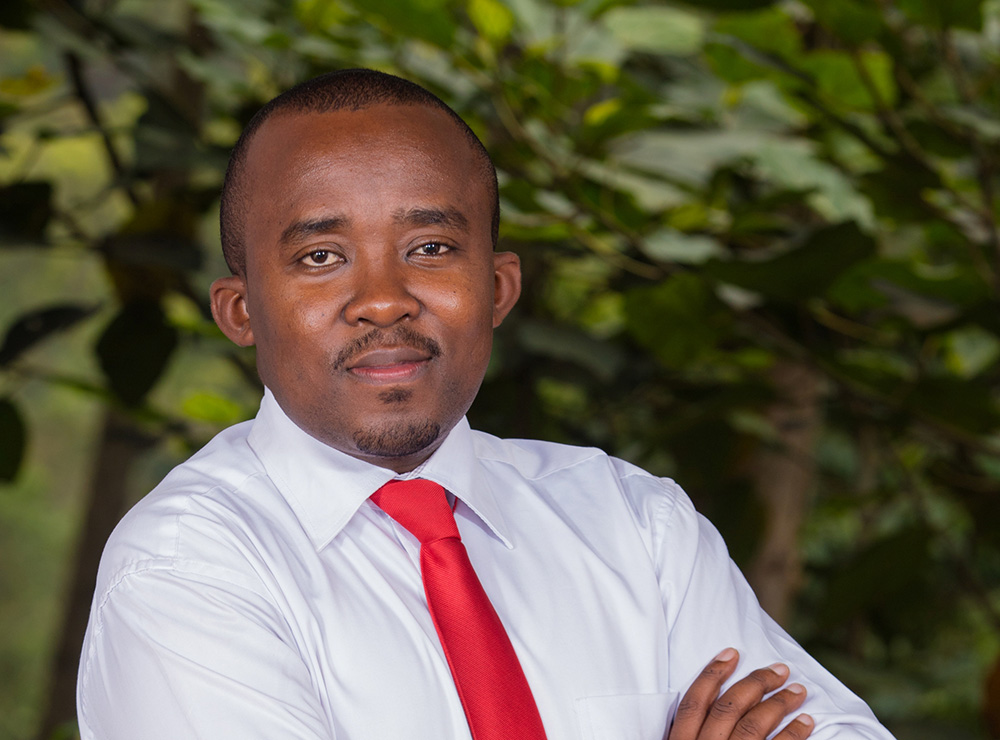
“We look forward to seeing her next chapter unfold,” says Mwirigi.
Najjuka’s gaze extends beyond her own trajectory. She speaks of what the Department could become. Furnished and equipped with industry-standard equipment, newsroom simulations, and deeper investment in data journalism as prayers. Her excellence is not self-congratulatory, but it is forward-looking.
“The University should support the Department to procure industry-standard equipment. Access to high-quality cameras, sound booths, and updated editing software like Adobe Creative Suite is critical to our learning environment,” she says.
Adding that, “We need a newsroom simulation, a physical or digital space where students work under real-time deadlines to produce content for the public. That would prepare us for industry and even strengthen the University’s own media platforms.”
In an era defined by metrics, algorithms, and digital traceability, data journalism is no longer a niche skill but a sine qua non of credible reporting. “There should also be more focus on data journalism and search engine optimization. These are no longer optional skills. Students would benefit immensely from stronger training in these areas.”
Dr. Aisha Nakiwala, the Head, Department of Journalism and Communication, says the faculty are very proud that she is graduating with a First Class—the only one in this year’s cohort.
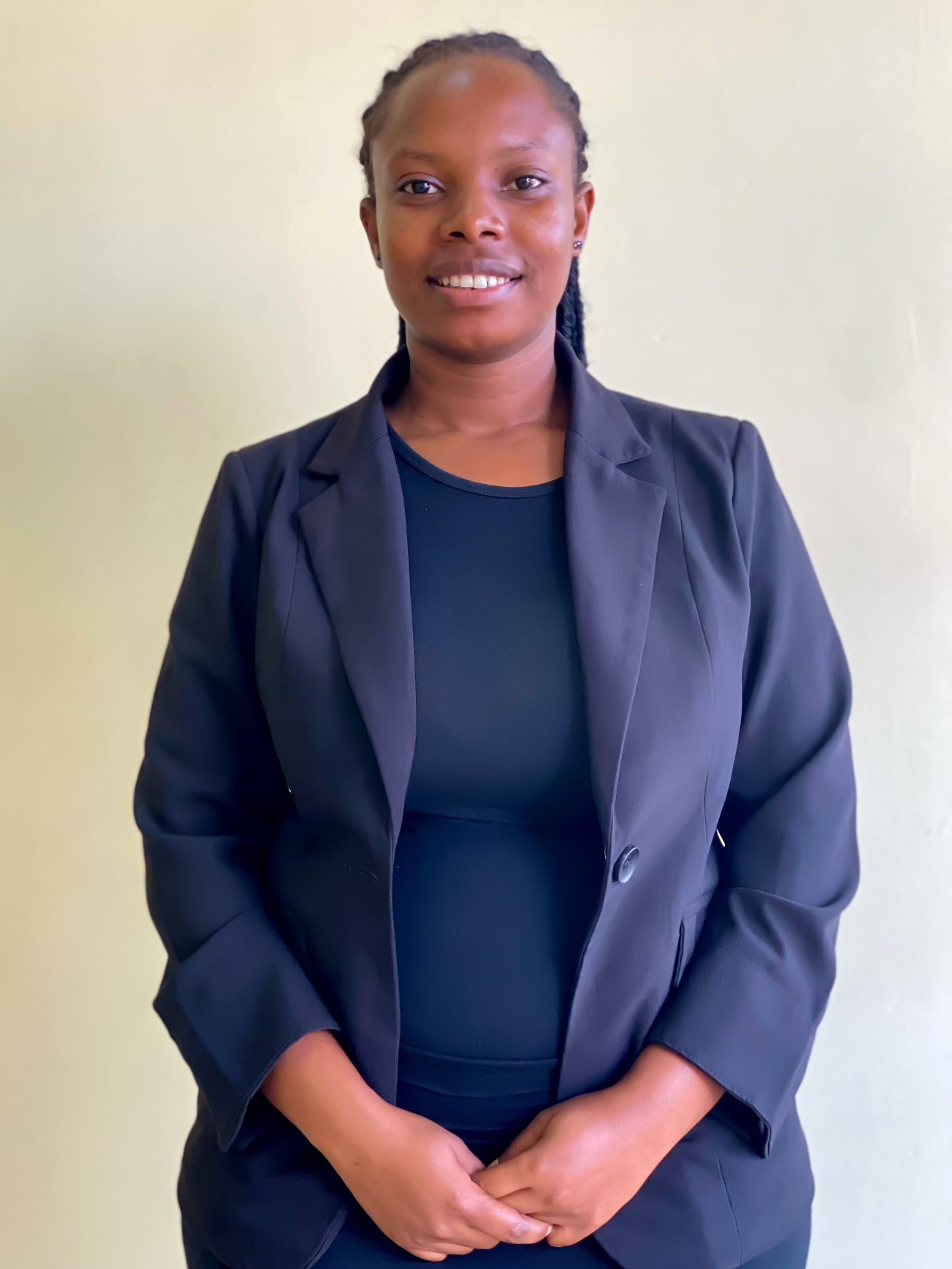
“This achievement reflects not only exceptional intellectual ability but also discipline, resilience, and sustained dedication to the highest standards over four years. Graduating with first-class honors is no small feat; it requires consistent outstanding performance.
“Her accomplishment sets a powerful example for continuing students and reaffirms our department’s commitment to nurturing excellence. We are confident she will make meaningful contributions to the communication profession and society at large,” says Dr. Nakiwala.
On graduation day, applause will crest and recede. The gowns will fold back into wardrobes. The transcripts will be filed away in cabinets. But something quieter will endure; a young woman from Nabbingo who once missed her Law mark, who spent 20 hours a week on the road, who discovered that storytelling is power, and who now walks into Freedom Square not by accident, but by intention.
Life, as she has come to understand it, lives on.
Humanities & Social Sciences
Dr. Pamela Khanakwa Honored for Steering Record 18 PhD Candidates for the Mak 2026 Graduation
Published
1 month agoon
January 23, 2026By
Jane Anyango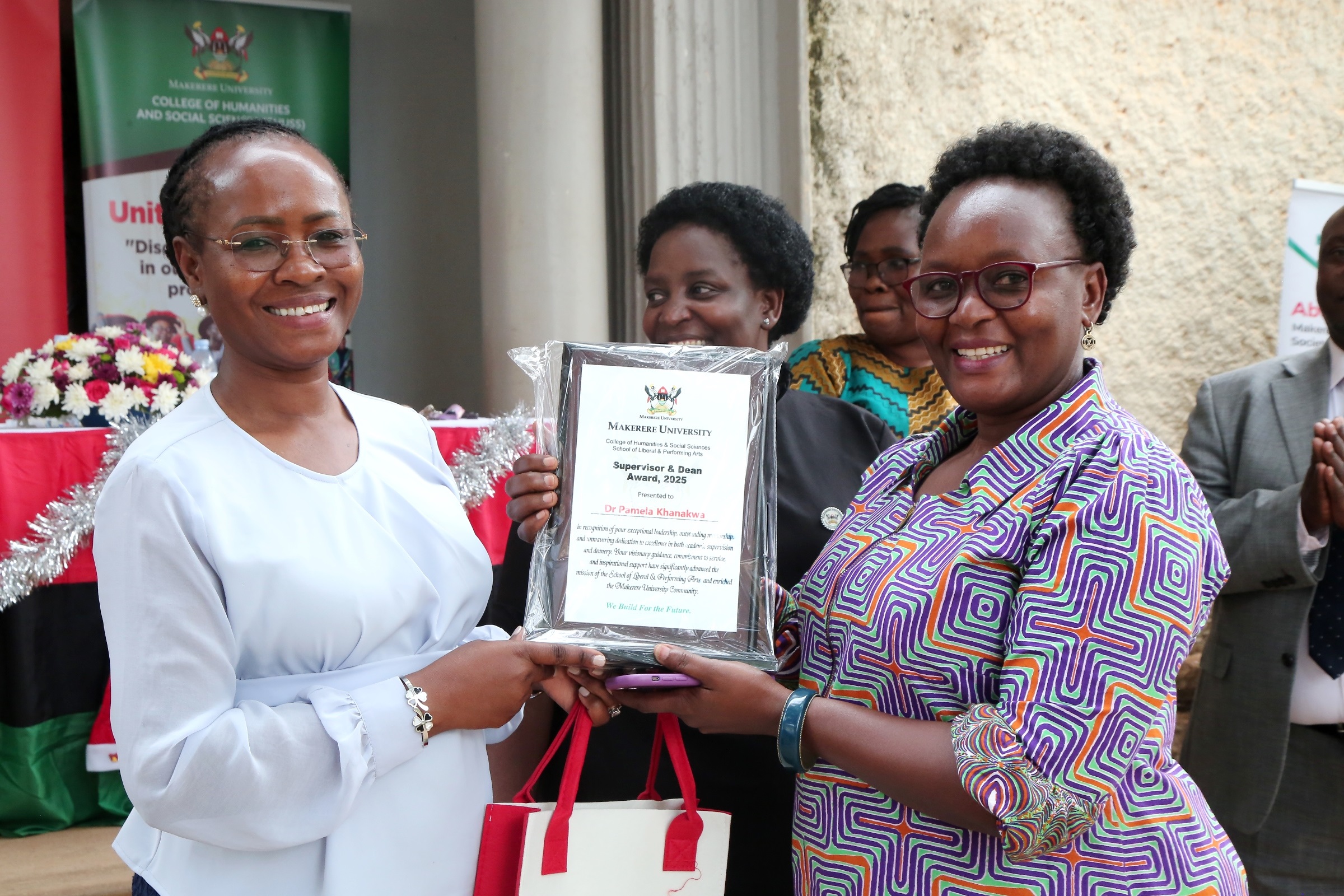
Six personally supervised, three completed in record time, as School of Liberal and Performing Arts sets a historic milestone. Dr. Pamela Khanakwa got the Award as Best PhD Supervisor and Dean
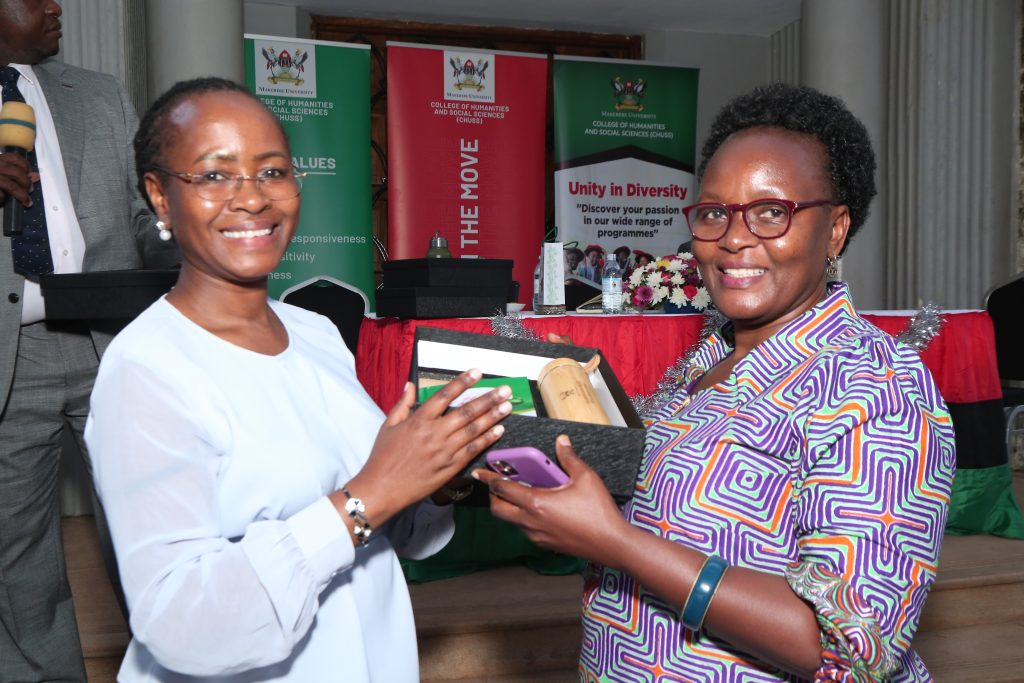
A Historic Academic Milestone for SLPA
The College of Humanities and Social Sciences (CHUSS) recognised the Dean of the School of Liberal and Performing Arts (SLPA), Dr. Pamela Khanakwa, for outstanding academic leadership that has seen the School field 18 PhD candidates for the next 2026 Makerere University Graduation Ceremony scheduled for 24th-27th February. Remarkably, six of these doctoral graduates were directly supervised by Dr. Khanakwa, with three completing within the official three-year timeframe, an exceptional achievement in graduate training. The recognition was announced during the CHUSS End-of-Year Get-Together, where staff applauded Dr. Khanakwa’s dedication, humility, and relentless commitment to postgraduate supervision and timely completion.
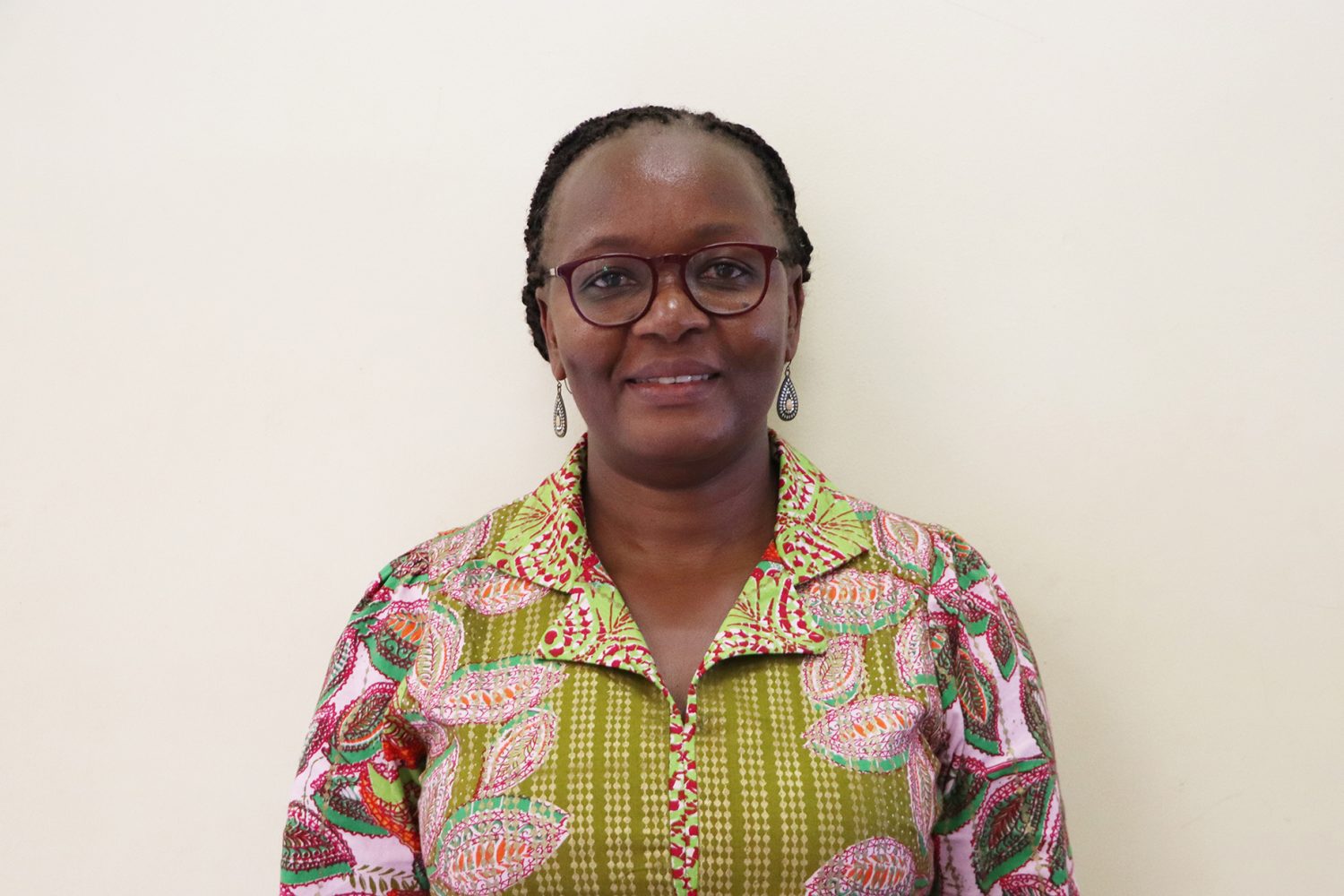
Message to Academic Staff
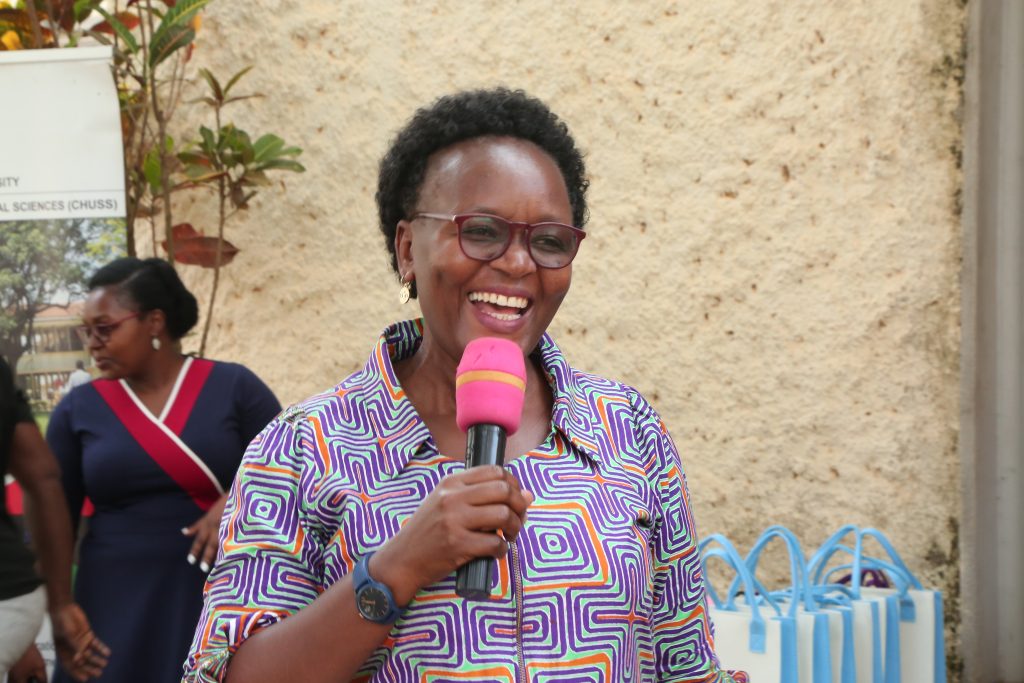
Q: What message do you have for your staff following this achievement?
Dr. Khanakwa:
First, I celebrate my staff and thank them for their dedication to supervision and student support. Academic work is demanding, and material rewards are often limited, but the true satisfaction comes from seeing students succeed.
I encourage my colleagues to remain committed. Yes, the workload is heavy, but many things are possible with dedication and teamwork. Let us continue working for the good of our students, our School, and Makerere University.
Leadership Rooted in Humility
Q: Many colleagues describe you as humble, down to earth, and hardworking. What shapes this character?
Dr. Khanakwa:
I think it is largely my upbringing. My mother was a primary school teacher from the 1950s until the mid-1980s. She worked extremely hard to raise us, combining teaching with farming to ensure we had school fees and basic needs. From her, I learned humility, discipline, and the value of hard work.
I also learned that leadership positions are temporary. You occupy them today, and tomorrow you move on. So humility is essential.
My graduate training also shaped me significantly. My PhD supervisor emphasized that graduate study is a full-time job and that results matter more than noise. Let people see your work through outcomes, not announcements.
Supervision as a Two-Way Commitment
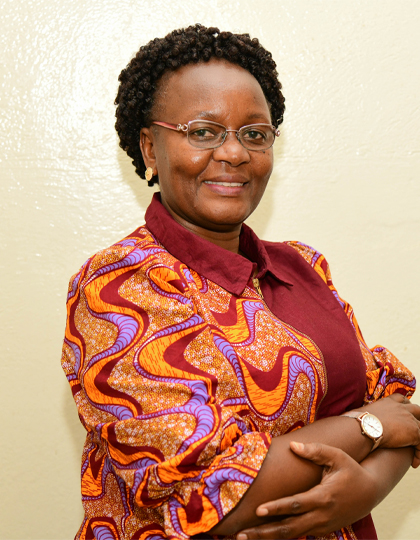
Q: How would you describe your supervision style?
Dr. Khanakwa:
I read my students’ work thoroughly, word by word. Sometimes my comments are tough, but they are honest. Supervision is a two-way commitment. I give feedback, but students must also respond and remain engaged. When that relationship works, progress happens.
Balancing Leadership, Scholarship, and Family
Q: How do you balance being a Dean, scholar, wife, mother, and daughter?
Dr. Khanakwa:
Honestly, I am not sure I balance perfectly. My mother lives far away in Bukwo, so visiting requires careful planning. My children grew up understanding the demands of academic life. I pursued my PhD in the United States and spent long periods away, but we adapted as a family.
Work has become part of my lifestyle. I use weekends to read dissertations, review manuscripts, and write. Sometimes my children ask if I ever sit without working, but this is the commitment I made. As we often say jokingly, “We humbly applied for the job, so let us do the job.”
Scholarship Beyond Supervision
Dr. Khanakwa is also an active scholar and editor. In the past year alone, she has:
- Edited scholarly volumes on archives, memory, method, and pedagogy
- Published a book with Routledge Companion
- Co-authored journal articles and book chapters with graduating students, including Priscah Asiimwe and Anatoli Lwasa Mpijja
“I feel an obligation to write with students,” she notes. “It takes time, energy, and commitment, but it is part of academic mentorship.”
Who Is Dr. Pamela Khanakwa?
Dr. Pamela Khanakwa is the Dean, School of Liberal and Performing Arts, College of Humanities and Social Sciences, Makerere University. She is a seasoned scholar, supervisor, administrator, and mentor whose leadership continues to redefine graduate training excellence. Details about Dr. Pamela Khanakwa can be accessed at: https://chuss.mak.ac.ug/en/personnel/pamela-khanakwa/
More details are available in her attached curriculum vitae.
The CHUSS End- Of-Year-Get-Together
On 12th December, 2025 the college leadership organised a get-together end of year gathering to take stock of the achievements, challenges and brainstorm together on how to move forward. The event was marked by entertainment, team building games, appreciation speeches, sharing a meal and a Christmas package for every staff
Retirees and staff recognised
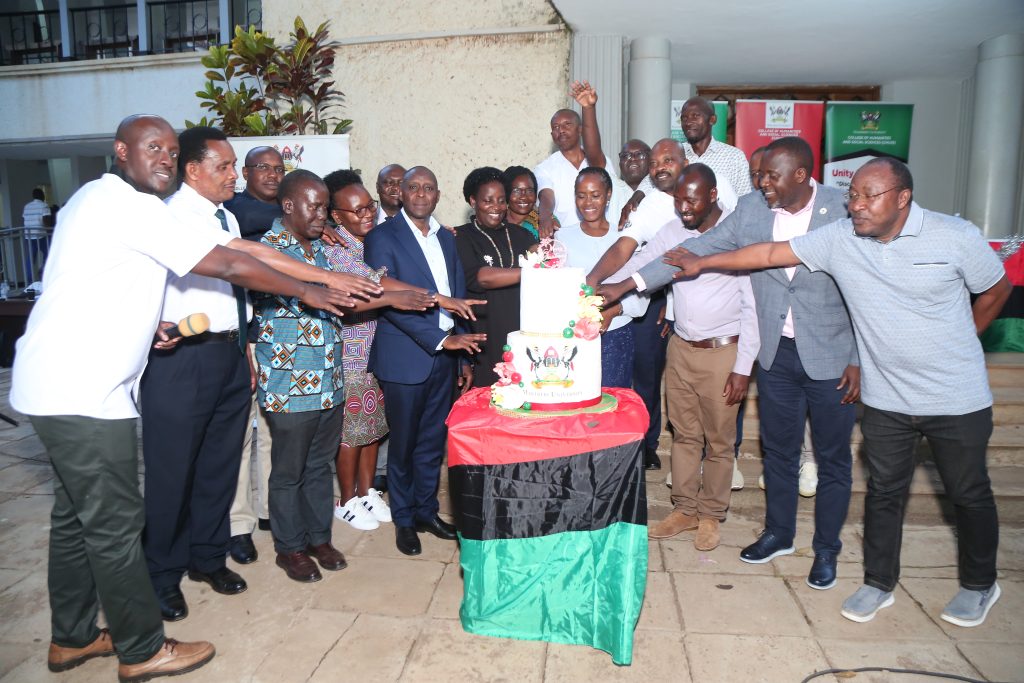
Five retired staff Dr. Micheal Wangotta Masakala, Dr. Anatole Kirigwajjo and Dr. Jackson Kizza Mukas (all from the School of Languages, Literature and Communication), Assoc. Prof. Florence Nansubuga (School of Psychology), Dr. Tusabe Gervase (School of Liberal and Perforing Arts) and Ms. Scovia Nganda Sekweyama (secretary from the School of Social Sciences) were recognised for their dedicated services to the university.
In addition to Dr. Pamela Khanakwa’s Award as Best PhD Supervisor and Dean, Ms. Birabwa Florence scooped the award of Best Registrar of the year. Birabwa is the registrar for the School of Liberal and Performing Arts.
Administrative and support staff including Ms. Mary Gyezaho and Annet Kashumbusha(both administrative secretaries in the Principals office), Farouq Lule (IT Officer), Godfrey Kakooza (cleaner), Charles Sebuguzi (driver) and Jane Anyango (Communications officer) were recognise with awards for outstanding service. Dr. Mohamed Mayanja Kajumba was from the School of Pyschology was recognised as the person with an outstanding talent in Handwriting.
The celebrations held in the Arts quadrangle were graced by the Vice Chancellor Academic Affairs Prof. Sarah Ssali and the Deputy Vice Chancellor in charge of Finance and Adminstration Prof. Ireeta Tumps.
Humanities & Social Sciences
Ugandan Journalists Trained on Peace and Gender-Sensitive Reporting Ahead of 2026 Elections
Published
2 months agoon
January 9, 2026By
Jane Anyango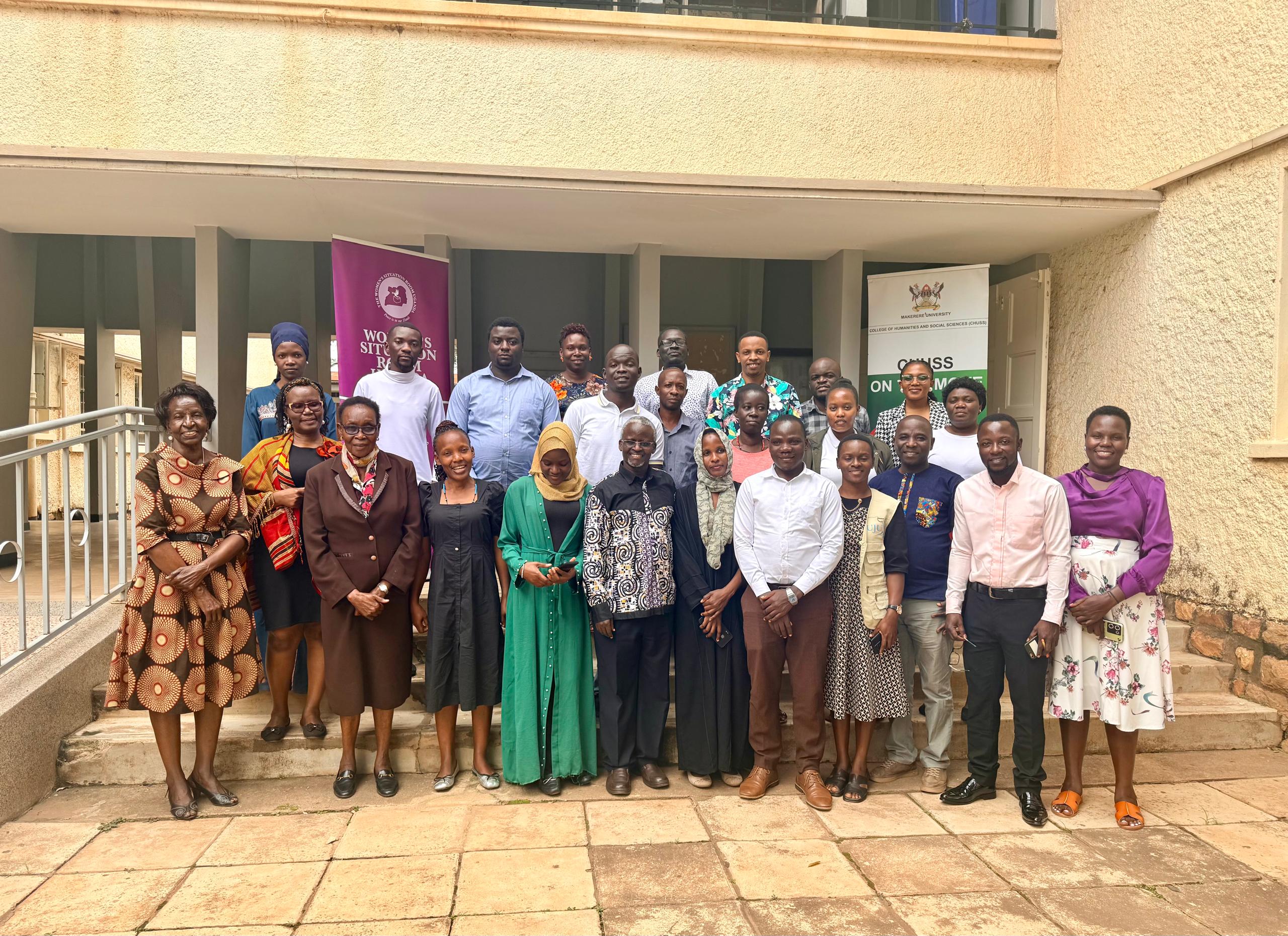
Kampala, Uganda – January 9, 2026
Ahead of the January 15 general elections, Ugandan journalists have undergone specialized training on peace and gender-sensitive reporting to ensure responsible media coverage during the election period. The two-day training, held from 8th to 9th January 2026 at Makerere University’s College of Humanities and Social Sciences Smart Room, was organized by the Women’s Situation Room (WSR) in partnership with various stakeholders and brought together journalists from across print, broadcast, and online platforms.
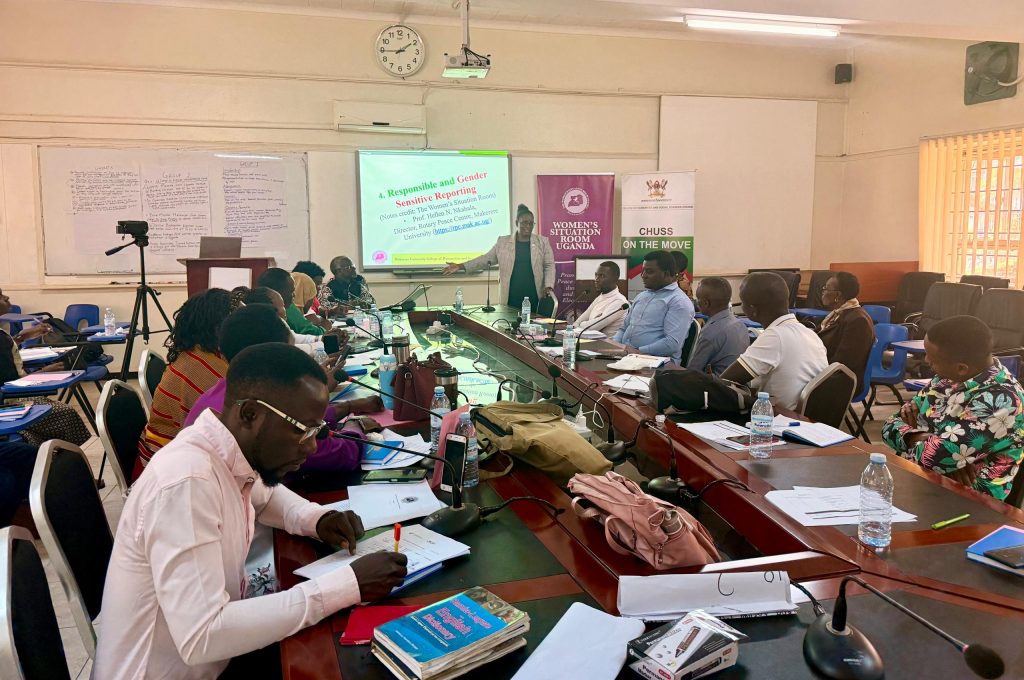
The main objective of the training was to strengthen the capacities of media in reporting and documenting electoral processes in a responsible and gender-sensitive manner. The specific objectives included: strengthening journalists’ skills to cover the 2026 elections in a fair, balanced, gender-sensitive, and non-violent partisan way; enhancing the role of media to enable citizens to be well-informed and actively participate in the election process; ensuring focused and balanced reporting on peace during and after elections; and strengthening partnerships between the WSR and media houses during the election period.
The training covered multiple critical modules. Day one focused on responsible conflict-sensitive reporting, emphasizing principles such as balance, impartiality, and accuracy. Participants explored the role of media as a relayer of the population’s voice, election monitor, catalyst for social cohesion and reconciliation, contributor to the accountability of political actors, and a platform for detecting and debunking digital media misinformation and hate speech.
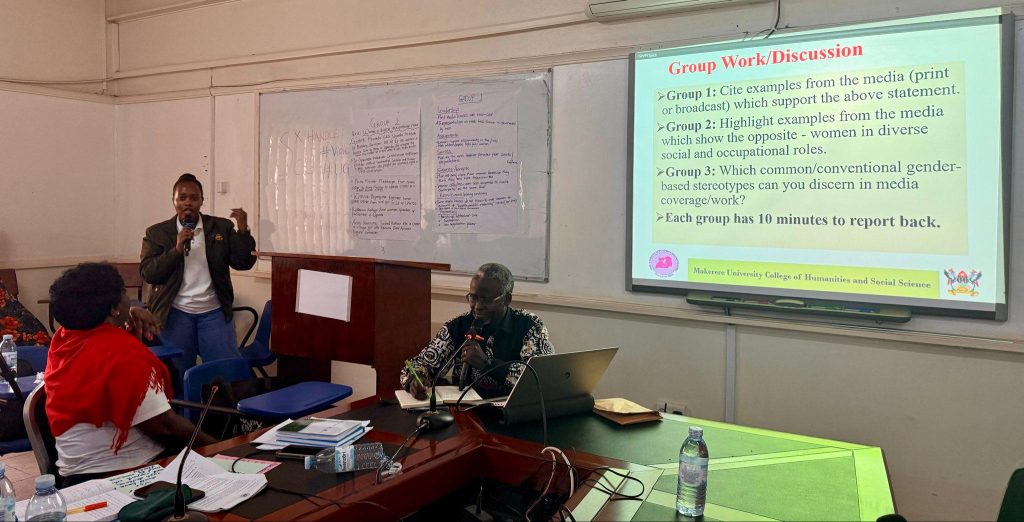
Day two addressed responsible and gender-sensitive reporting. Key aspects included the definition of gender-sensitive reporting, how to become a gender-sensitive reporter, critical elements in reporting with gender awareness, packaging gender-sensitive stories, and a checklist for detecting and avoiding gender-insensitive reporting.
Her Lordship, retired Judge Justice Mary Mayitum, emphasized the importance of peace as the foundation of development and democratic engagement. “Because we value peace more than anything. Without peace, really, you can do nothing. But where there is peace, you can have time to reflect, discuss with others, and join in meaningful dialogue,” she said. She warned that the country’s past conflicts, such as those in Gulu, underscored the necessity of maintaining national harmony.
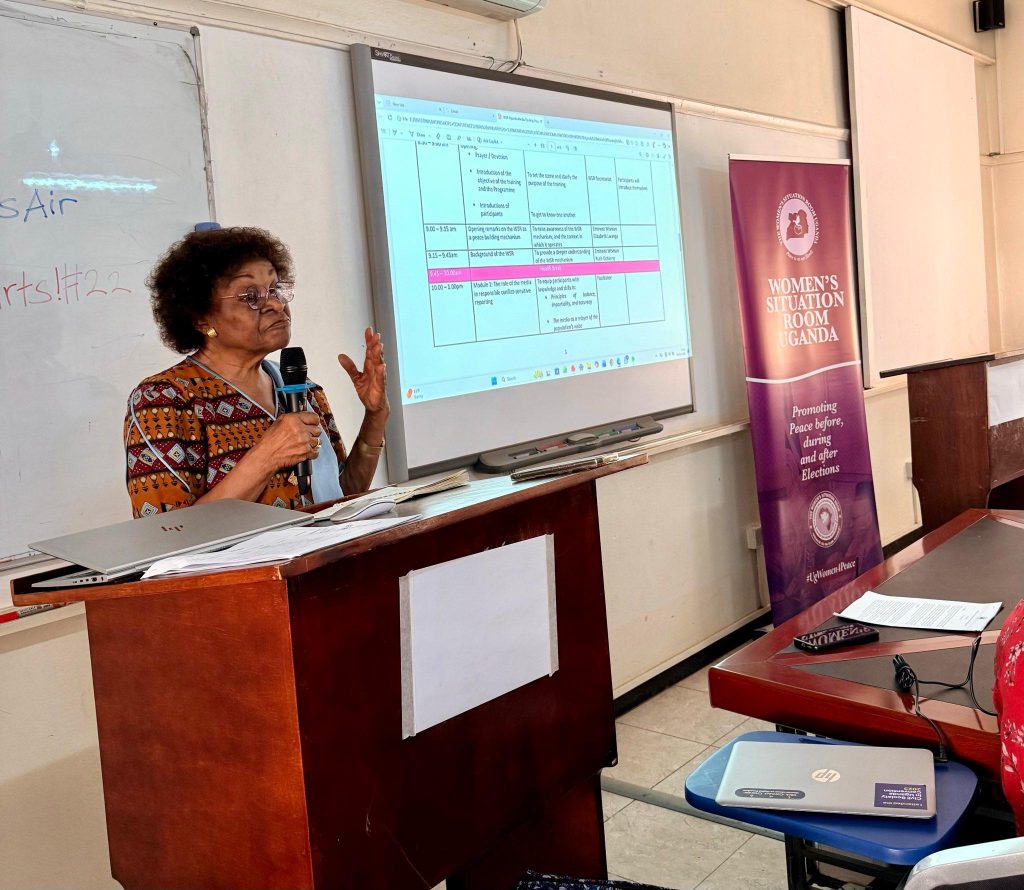
Justice Mayitum also urged other key election stakeholders to uphold peaceful conduct. “Being peaceful is the very heart of life. We have spoken to police, security personnel, political parties, and the Electoral Commission. We want politicians to have a code of conduct and to understand that it’s okay to think differently without fighting or hating one another,” she added.
Dr. William Tayebwa, lead facilitator and senior lecturer in the Department of Journalism and Communication at Makerere University, said, “This training is about conflict-sensitive reporting, peace journalism, and gender-sensitive reporting in the context of the elections. The emphasis was on giving female political candidates a voice while ensuring journalists report responsibly on election-related matters.”
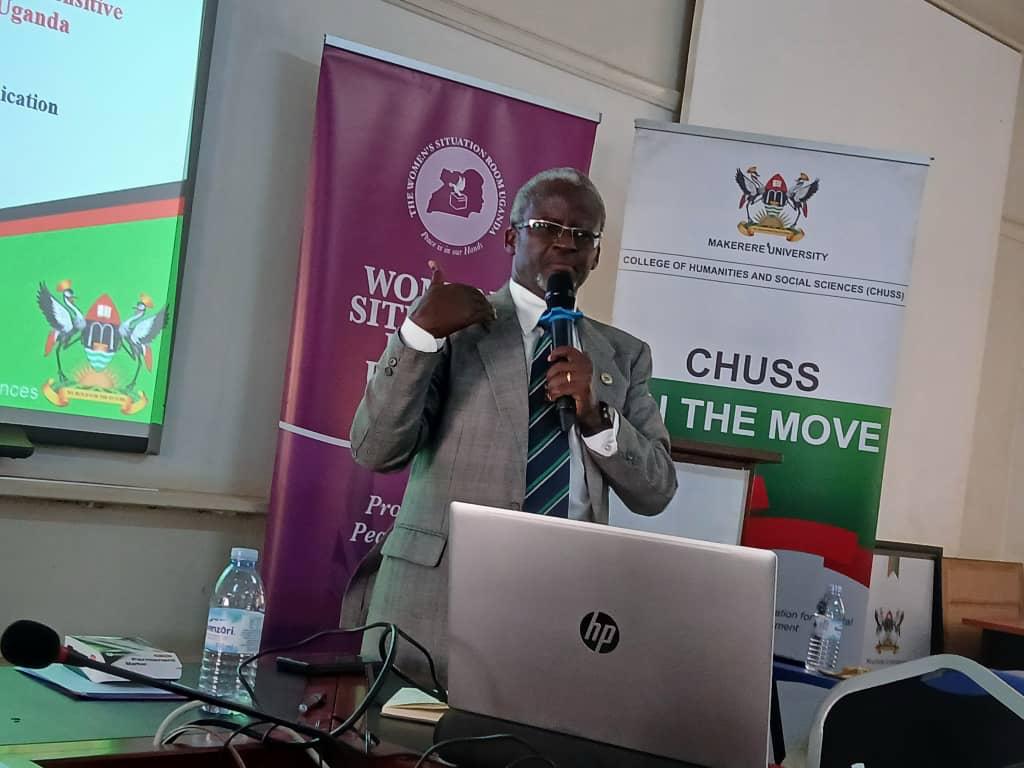
Participants described the training as timely and impactful. Tony Banizengabo of CBS Wakiso District said, “We’ve benefited a lot. We’ve been trained to write stories which bring peace, not conflict. Ahead of the elections, we are very ready to be part of peacemakers.”
Dorcas Kimono of UBC TV Kampala added, “It was so timely and rich. We learned how to report without promoting or fueling violence, giving voice to victims without angering them or encouraging violators. This is very vital, especially as we approach the 2026 elections.”
The training aims to equip media personnel with the knowledge and skills to uphold professional ethics while contributing to a peaceful, inclusive, and gender-sensitive electoral process.
Trending
-

 General2 weeks ago
General2 weeks agoAptitude Exam (Paper 1) Results for the Mature Age Entry Scheme 2026/2027
-

 Health5 days ago
Health5 days agoUganda has until 2030 to end Open Defecation as Ntaro’s PhD Examines Kabale’s Progress
-

 General6 days ago
General6 days agoMastercard Foundation Scholars embrace and honour their rich cultural diversity
-

 General2 weeks ago
General2 weeks agoFor Youth by Youth – Call for Second Cohort Applications
-

 Agriculture & Environment4 days ago
Agriculture & Environment4 days agoUganda Martyrs Namugongo Students Turn Organic Waste into Soap in an Innovative School Project on Sustainable Waste Management